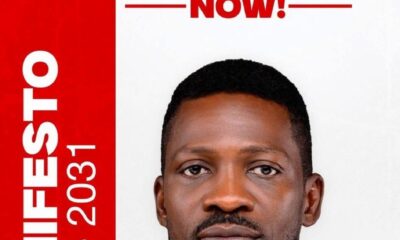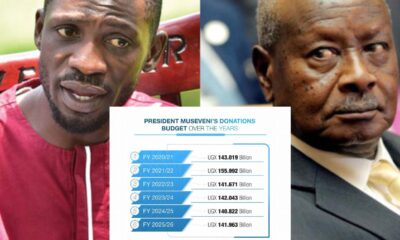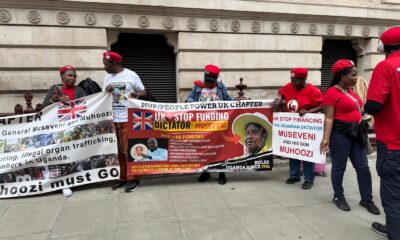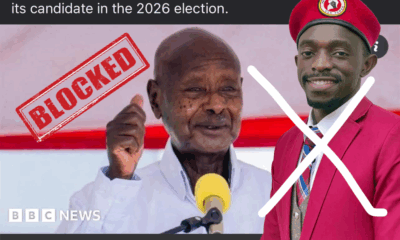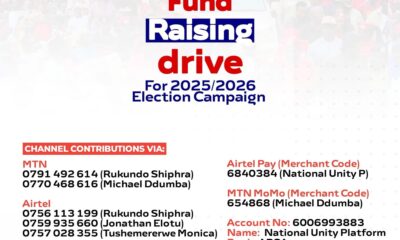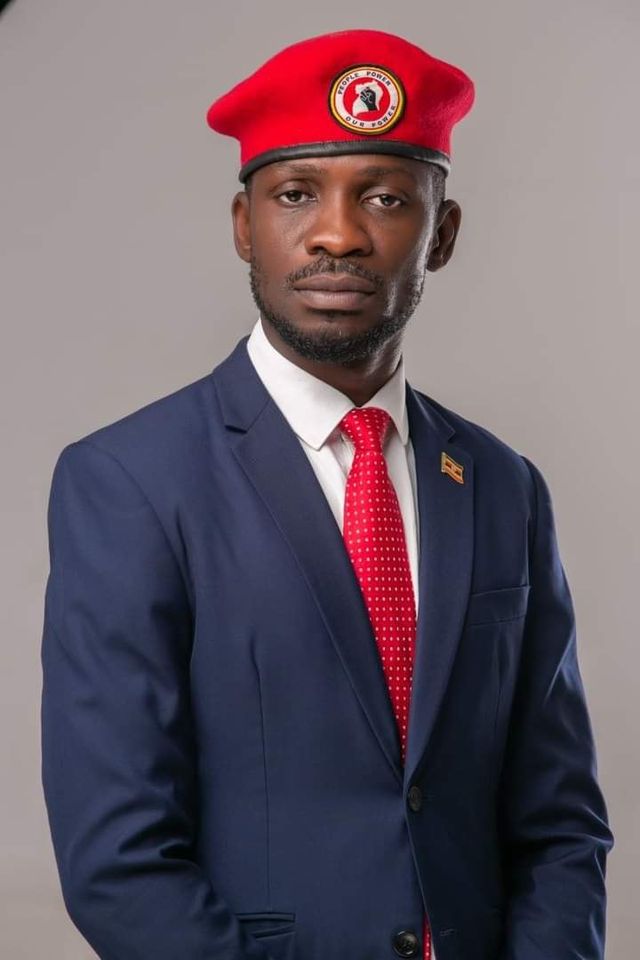

Exclusive
National Geographic has snatched up the Venice 2022 festival Bobiwine documentary: Ghetto President.
The Bobiwine documentary follows Ugandan Afrobeats star-turned-politician Bobi Wine, who has challenged authoritarian Uganda’s authoritarian president, Yoweri Kaguta Museveni.
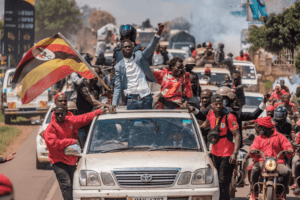
National Geographic Documentary Films has snatched up the Venice 2022 festival documentary Bobi Wine: Ghetto President and will take the film out worldwide.
The documentary, from directors Christopher Sharp and Moses Bwayo, follows the career and life of Robert Kyagulanyi, better known as Afrobeats pop star Bobi Wine, who is using his fame — and music — to shine a spotlight on corruption in his home country. Since his move into politics —Wine last year ran for president, challenging the authoritarian leadership of Ugandan leader Yoweri Kaguta Museveni — the singer has survived beatings and an assassination attempt. But he has not been bowed.
“My people, the Ugandan people, are familiar with my journey through music, politics, imprisonment and torture, but this film is a microcosm of my country’s larger struggles under an unrelenting dictatorship that has been operating with impunity for decades,” said Wine. “I can’t wait for global audiences to see the reality of the situation and question their leaders’ support for this regime.”
National Geographic snatched up Bobi Wine: Ghetto President after its world premiere at this year’s Venice Film Festival and ahead of its US bow at Telluride today. Wine, who was in Venice to promote the film, will be at the US premiere as well, and will give a live musical performance in the center of town on Sunday night.
National Geographic plans to tour Bobi Wine: Ghetto President across global festivals throughout the rest of the year and release it in theaters in 2023.
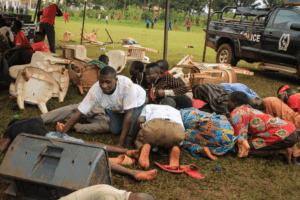
“Bobi and his wife Barbie are once-in-a-lifetime heroes who take great personal risk to dislodge and liberate a nation from a ruler who has been in power for 35 years,” said directors Bwayo and Sharp. “As documentary filmmakers, we are occasionally fortunate enough to be given the opportunity to relate events that can bring about transformation. We believe that this is one of those occasions.”
Previous releases from National Geographic Documentary Films include the Oscar-winning Free Solo and Oscar-nominated The Cave, the adventure biography Becoming Cousteau on the life of famous explorer and environmentalist Jacques Cousteau, and Ron Howard’s 2020 documentary Rebuilding Paradise, about the attempts to rebuilt the Sierra Nevada town Paradise, California after devastating wildfires.
Why Ugandan Rapper Bobi Wine Wants the World’s Attention
With the new doc ‘Ghetto President,’ the popular performer, who has survived beatings and an assassination attempt amid his move into politics, is using his fame — and music — to shine a spotlight on corruption in his home country.
The story of Ukraine president Volodymyr Zelensky’s rise from TV comedian to a headline-making political figure and hero to many is well known. But some 3,500 miles from Kiev, in Kampala, Uganda, and almost entirely out of the international media spotlight, there’s another entertainer-turned-politician fighting for democracy — and hoping the world pays attention.
Robert Kyagulanyi, better known by his Afrobeats pop star handle Bobi Wine, was one of Africa’s most successful musicians and best-known celebrities — he even had his own reality TV show, Da Ghetto President — before a shift to politics turned the onetime “ghetto rapper” into the face of the opposition against Uganda’s authoritarian president, Yoweri Kaguta Museveni.
Wine’s story is told in a new documentary, Bobi Wine Ghetto President, which premieres at the Venice Film Festival. Instead of the familiar rags-to-riches tale of a poor kid made good — Wine was raised in Kampala’s infamous Kamwokya slum, where he built his renowned Firebase recording studio — in Ghetto President, directors Moses Bwayo and Christopher Sharp focus on Wine’s political career.
Not that there’s an easy division between the music and the politics, between the campaigner and the entertainer. For two decades before he formally entered politics — in a successful grassroots run in 2017 for an elected seat in the Ugandan parliament — Wine has been using his music to address social injustice and push for reform.
His 2006 hit “Ghetto” was the opposition soundtrack for the elections that year. The 2014 reggae tune “Time Bomb” — with such lyrics as “I don’t know why corruption is too much/Why the price of electricity is too high” — is an unambiguous attack on government nepotism, corruption and the high cost of living.
“My music, my songs, have always been revolutionary, highlighting the plight of the people, calling out what’s wrong in society and singing it out,” Wine says in a video interview with THR from his home in Kampala. “Music is my biggest amplifier. If I have a political message, I’ll put it in a song, because I know many other people are going to sing that song, and that message is going to go out.”
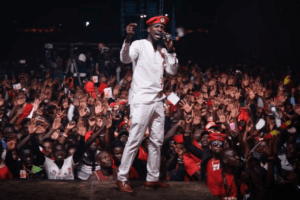
Wine’s musical messages run through Ghetto President as the film traces his “people power” revolution from 2017 through 2021, when Wine ran against Museveni in Uganda’s presidential elections. Wine lost, though he and many international organizations and nations, including the U.S. (a major aid donor to Uganda), questioned the official result, claiming evidence of fraud and vote tampering.
The Bobiwine documentary draws a sharp contrast between the 77-year-old Museveni, who has ruled Uganda since coming to power in 1986 on the back of an armed uprising, and the 38-year-old Wine. The former is shown as the embodiment of the revolutionary turned dictator — “our mentors become our tormentors,” Wine sings in one of his songs — while we watch the reggae star turned politician dancing his way across the country for his 2021 campaign, speaking in front of wild crowds of cheering supporters.
Wine, like Zelensky, is also a master of social media, regularly posting videos and music clips to his followers and using online platforms to spread his political messages. Here his entertainment background comes in handy. At the start of the COVID-19 pandemic, Wine recorded a song that later went viral, outlining both the symptoms of a COVID infection and the recommended hygienic measures to fight the spread of the virus. Imagine a Dr. Fauci press conference you can dance to.
For those who fear the power of social media to distort and deform democracy, Ghetto President is a reminder of how valuable global online platforms can be in countries where, as Wine says of Uganda, there is “state capture” of the mainstream media.
“Social media is a lifesaver and a life changer for us,” he says. “Here in Uganda, without social media, you would only be seeing the picture painted by the authorities. With social media, we can show the real picture in real-time, unfiltered. Mainstream, traditional media avoids talking about cases of human rights violations, about the rape cases against the military. Mainstream media won’t air my words, or if they do, they twist them to make sure that they favor the regime.”
A sign of the power of social media in Uganda came ahead of the presidential election, when the government shut down the entire internet rather than let opposition messages get through.
Wine’s high profile has made him a target: In 2018, he was arrested and charged with treason. He says police beat and tortured him. When he was released, as shown in the film, Wine could barely walk and had to be flown to the U.S. for medical treatment.
The threat of violence is omnipresent. One of Wine’s drivers was shot dead by police in what Wine says was an assassination attempt on him. A bodyguard was killed after being run over by a truck belonging to the military police.
“There are security operatives that are planted on my door, and they follow me on motorbikes wherever I go,” Wine says. “I’m still under threat, which is why I move in a bulletproof car, and when I leave home I have my own private security.”
The results of the 2021 election, and the government crackdown that followed it, have made Wine skeptical about whether democratic change is possible in Uganda without major social unrest.
“As it is, elections can do very little,” he said. “I think the power transition may only come when the people rise up, non-violently, peacefully, but assertively. Unfortunately, we can only do this with the help of the rest of the world. If we try to do it alone, whenever we try to do it alone, the result has been a massacre.”
But Wine is not giving up. By making Ghetto President and traveling to Venice to promote the film, he says he hopes to focus the world’s attention on Uganda.
“I want the people in the international community to know that somewhere in the world, somewhere in Africa, in a country called Uganda, people are being massacred for what they think,” he says. “But most importantly, I want the people of the international community to know that their taxpayers’ money, their aid, is being used to undermine human rights and democracy in Uganda. But you can help us. You can help us by stopping the support for Yoweri Museveni. You can help us do the right thing by you not doing the wrong thing.”
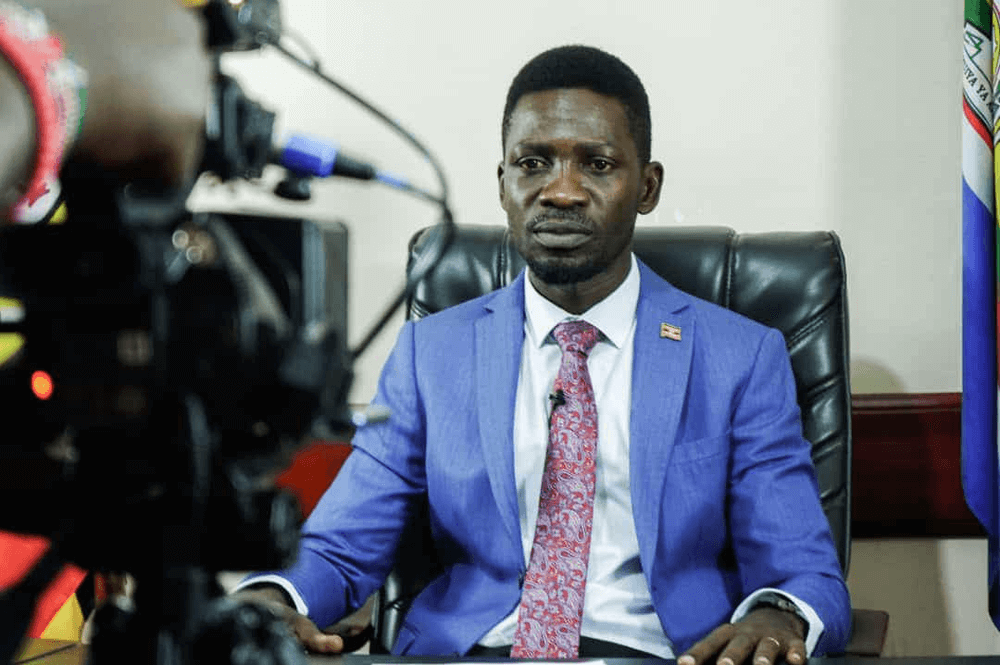
Exclusive
NUP Manifesto 2026-2031
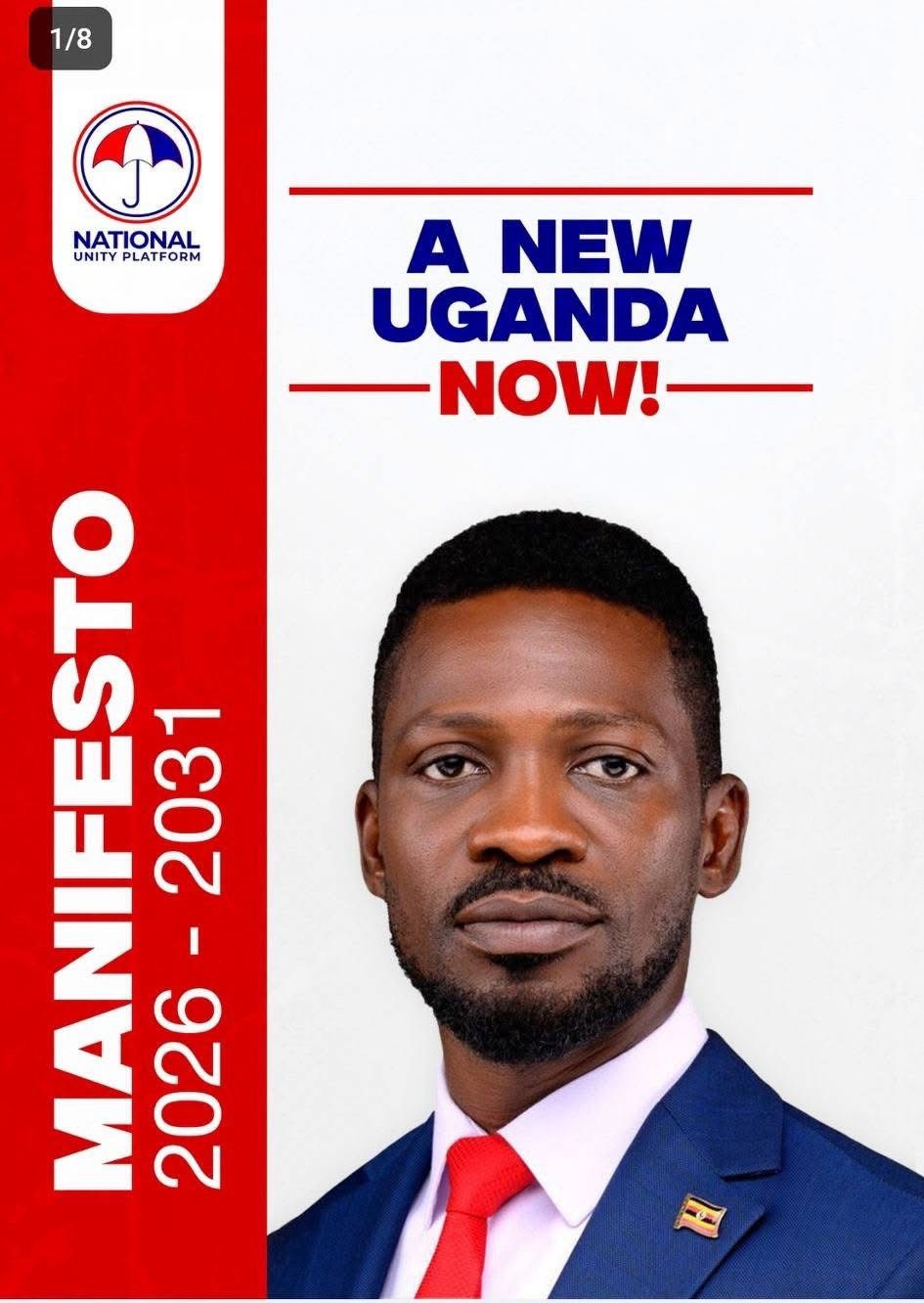
Fellow citizens, very honored to present to you the National Unity Platform Manifesto, 2026 – 2031, which we launched in Jinja District today. This is a manifesto born out of extensive consultation with our people. Extremely grateful to our Research and Policy teams for the great work done with so much dedication.
These are not mere promises- this is a covenant we are making with the people of Uganda to give our nation a fresh start. A NEW UGANDA NOW
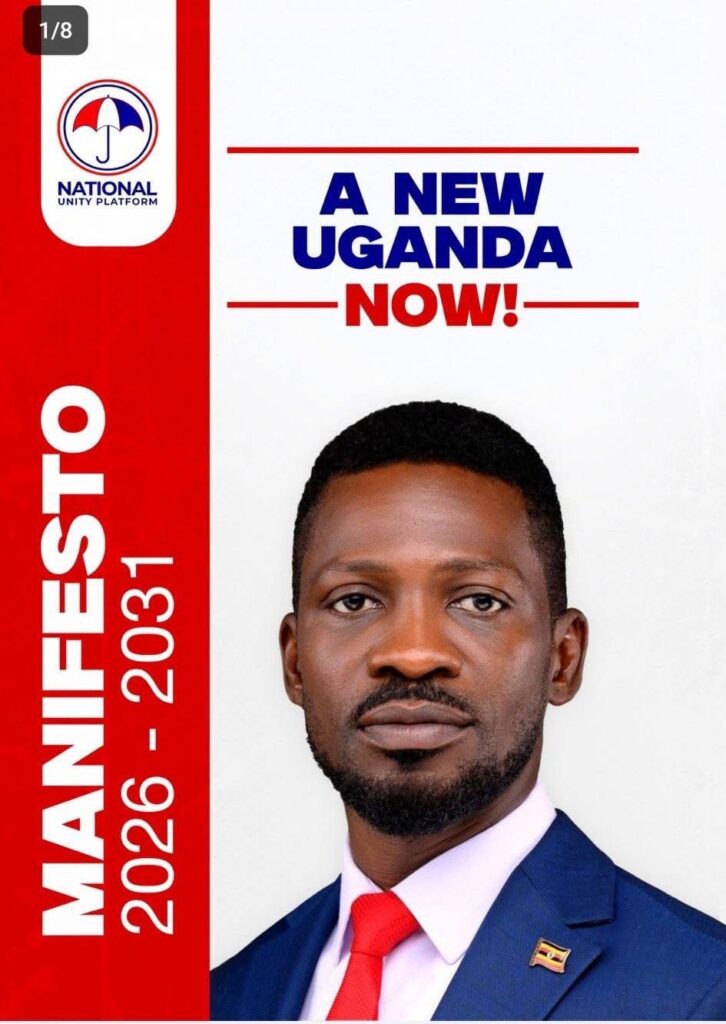
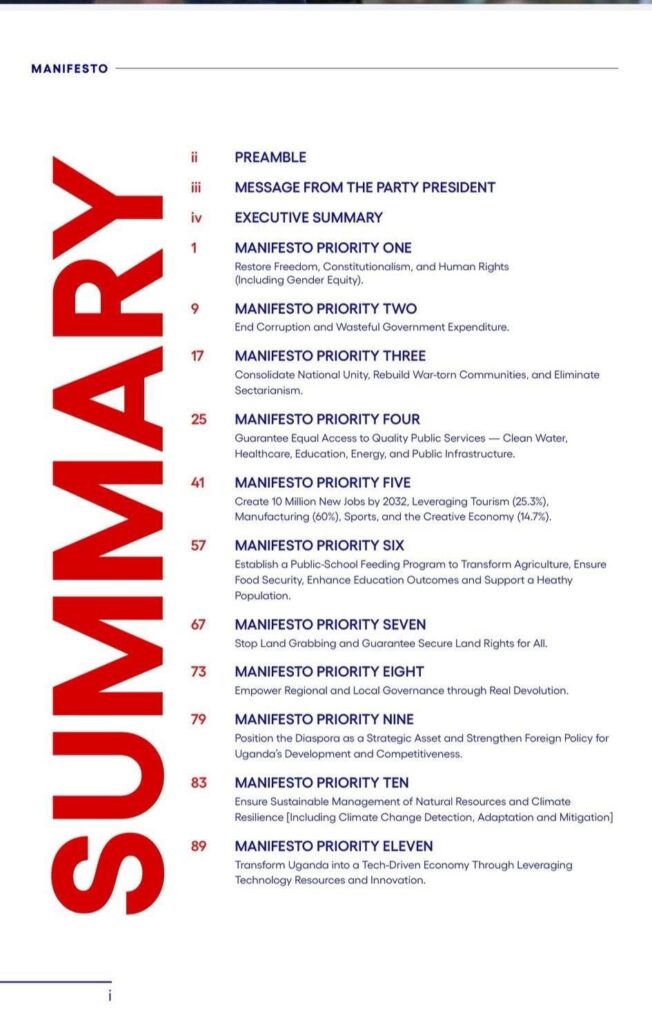
Exclusive
BBC Blocks Ugandan Activist and deletes his long post critiquing Museveni’s 40-Year Dictatorship
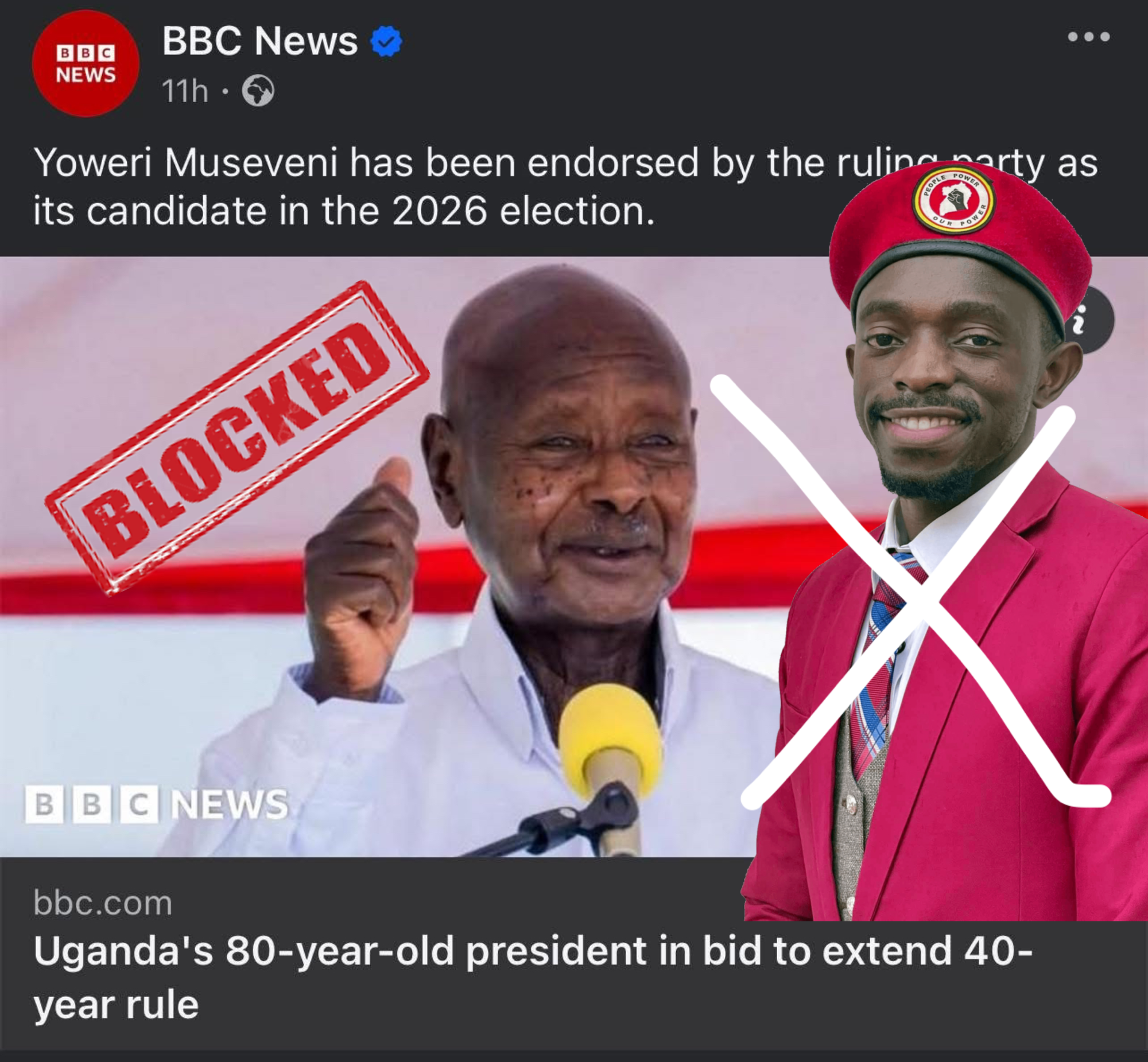
On July 7th, 2025, BBC News published a headline that read:
“Yoweri Museveni has been endorsed by the ruling party as its candidate in the 2026 election.”
Accompanied by a smiling image of Uganda’s 80-year-old ruler, the caption framed this moment as just another routine political development. But to millions of Ugandans especially the youth, this was not news. It was a slap in the face. It was a continuation of a 40-year nightmare disguised as democracy.
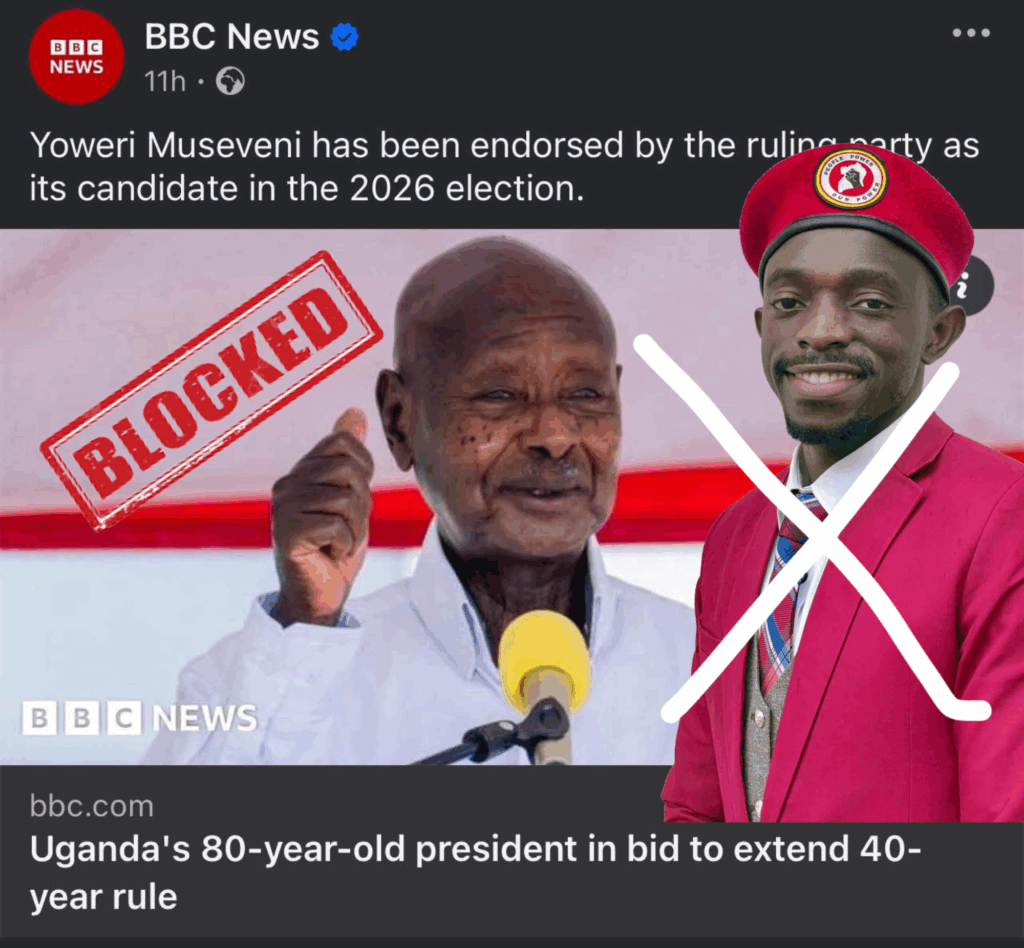
I commented under that post calmly but firmly exposing Museveni’s long record of repression, corruption, and illegitimacy. Within hours, my comment had been deleted. By the next morning, BBC News had blocked my account from interacting with their page. I had to access their page using a different account with my comment deleted.
No warning. No explanation. No appeal.
A British publicly-funded media house silenced a Ugandan citizen for exposing decades of abuse, in the comments section of their own post. Whom do they serve, what are they protecting??
What Did I Say That Deserved to Be Erased?
Here’s the truth that BBC did not want to remain under their post,
For nearly four decades, Yoweri Museveni has not ruled Uganda through democratic consent but through violence, constitutional manipulation, and military force. Since 1986, he has held onto power through rigged elections, brutal crackdowns, and legislative coups. He was not elected by the people in 1986, nor in 2001, 2006, 2011, 2016, or 2021.
In 2005, he bribed MPs to remove term limits a safeguard meant to prevent exactly this kind of life presidency. Then in 2017, when age threatened to disqualify him, he sent soldiers into Parliament to beat up lawmakers and remove the presidential age limit by force. These weren’t democratic reforms. They were constitutional rapes carried out at gunpoint.
Museveni didn’t come to power through the ballot. He came with bullets preaching against long-serving leaders only to become Africa’s longest-serving dictator.
Uganda Under Siege By Its Own Government
Uganda is not a democracy. It is a state under internal occupation. The police have become hunters. The army, a personal militia. Parliament, a circus of cowardice. Activists vanish into “torture houses.” Protesters are gunned down in the streets. In November 2020, more than 100 Ugandans were killed in cold blood simply for demanding the release of opposition leader Bobi Wine.
Today, youth unemployment is over 70%, hospitals are crumbling, and education is a luxury. Meanwhile, billions are siphoned through fake contracts, inflated military budgets, and ghost projects. Uganda’s national debt now exceeds 52% of GDP but the money doesn’t build; it maintains dictatorship.
Then the West’s Dirty Hands in Uganda’s Oppression
Museveni survives not on popular support, but on Western protection. Britain, the EU, and the United States continue to arm, finance, and legitimize his regime. To them, Museveni is a “stabilizer” in the Great Lakes region a useful gatekeeper in exchange for oil, gold, and mineral access. Their commitment to democracy ends at their borders.
Original Deleted comment
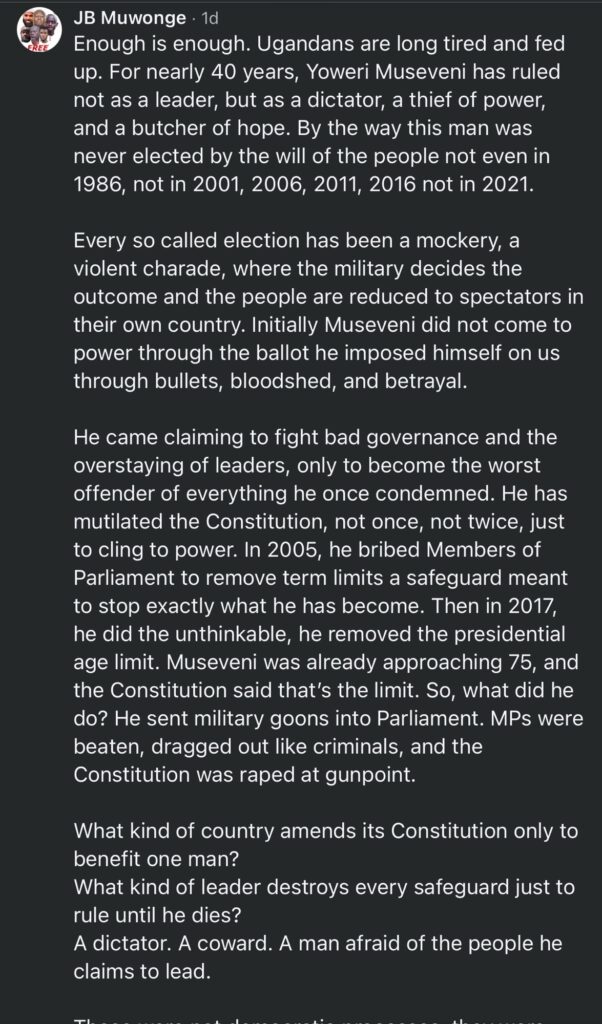
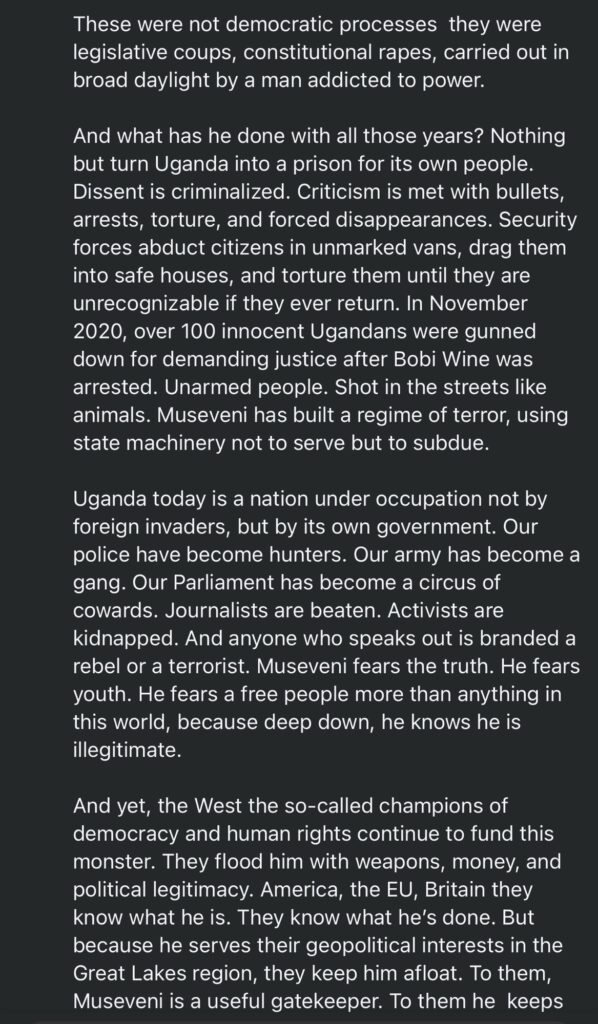
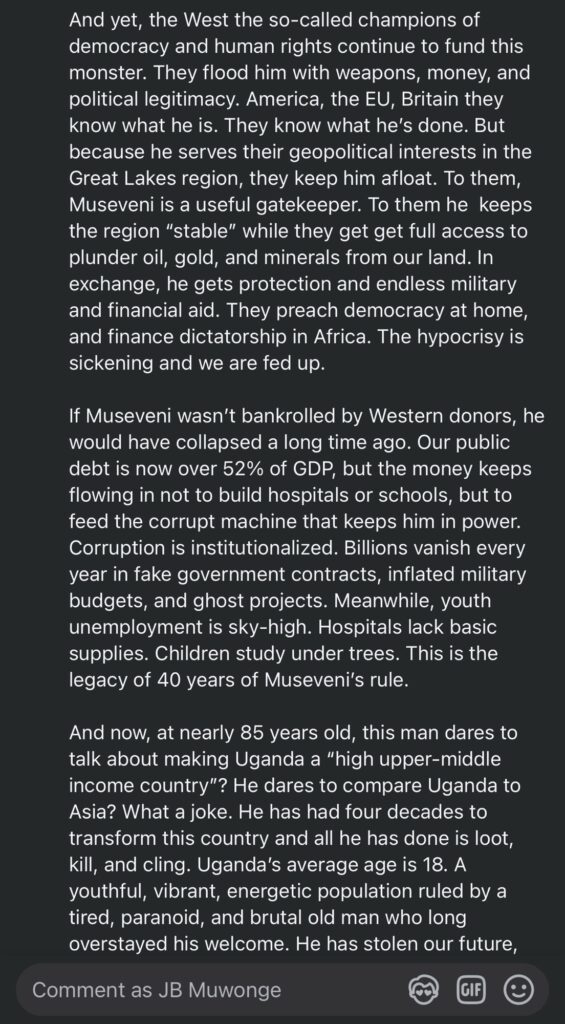
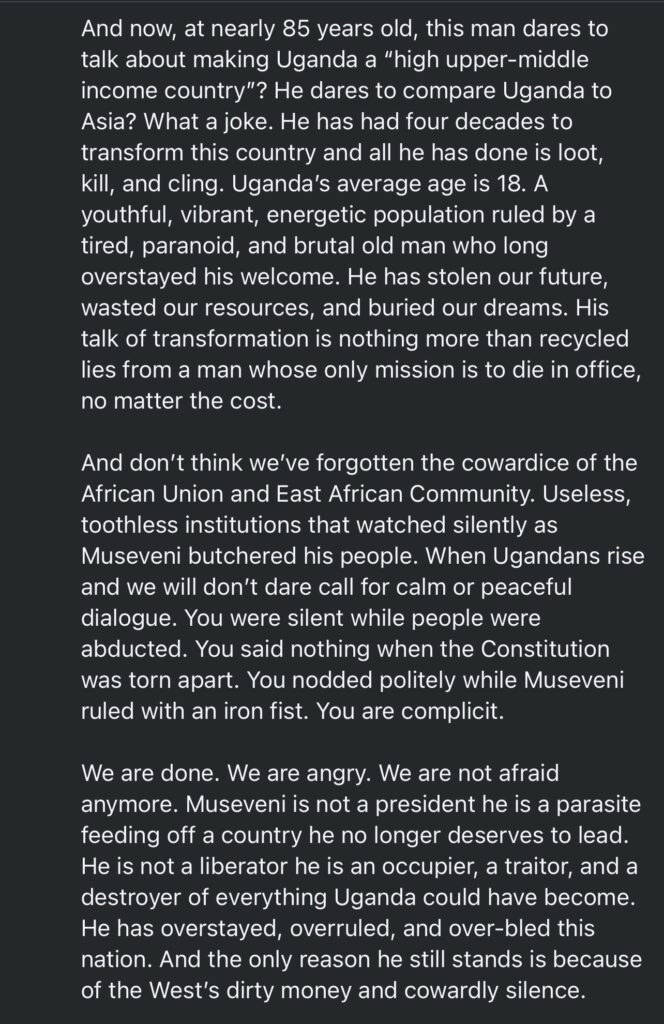
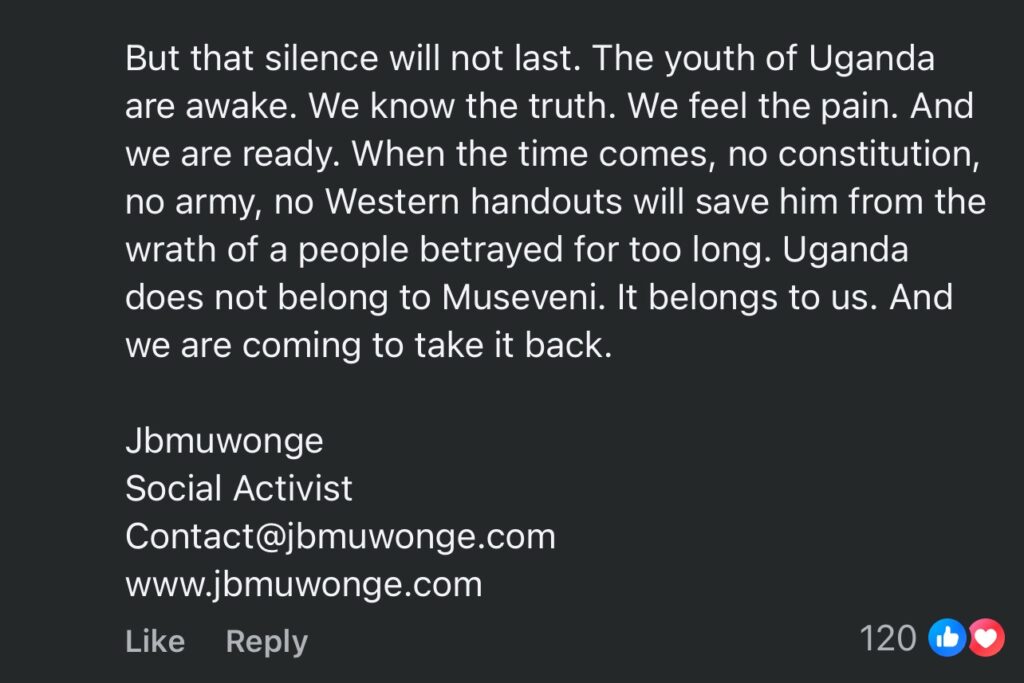
The same BBC that blocked me would never silence a Ukrainian, Palestinian, or Russian dissident for criticizing a regime. But they erased my voice a Black African fighting for justice in my own country. That is not journalism. That is complicity.
Why Was I Silenced for Speaking the Truth?
If my words were wrong, they could have been debated.
If my tone was aggressive, it could have been challenged.
But I was blocked and erased. That tells you everything.
Museveni fears the youth. He fears the truth. But now, so do his international enablers because the narrative is slipping.
Uganda’s young people are awake, informed, and angry. We are not afraid. Museveni is not a president he is a parasite, a relic clinging to power, feeding off a nation he has robbed for 40 years. He has overstayed, over-bled, and overruled Uganda. And we are ready to take it back.
To the BBC and the West You Can’t Silence Us All
If BBC wants to side with power instead of people, history will judge them. If they believe blocking one activist will stop the truth, they are mistaken. My voice echoes millions of others who are rising to say:
Enough is enough.
Uganda does not belong to Museveni.
It belongs to its people.
And we are coming for our future.
JB Muwonge
Social Activist | Human Rights Defender
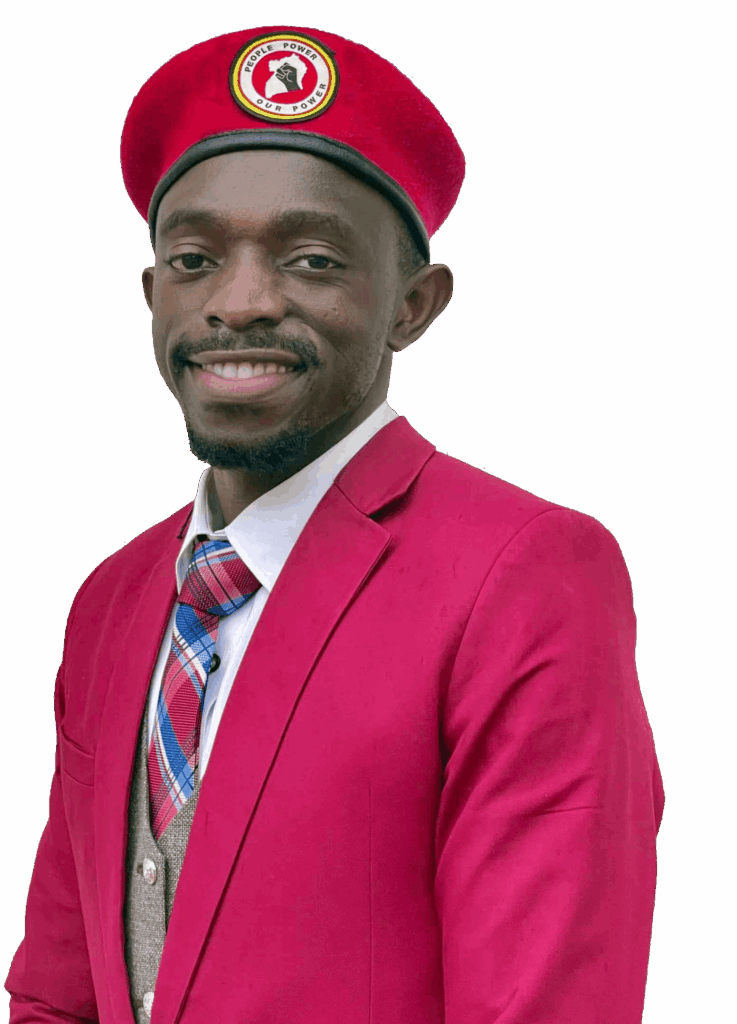
Exclusive
What Draws People to @HEBobi Wine? The Magnetic Charisma That Sets Him Apart Explained.
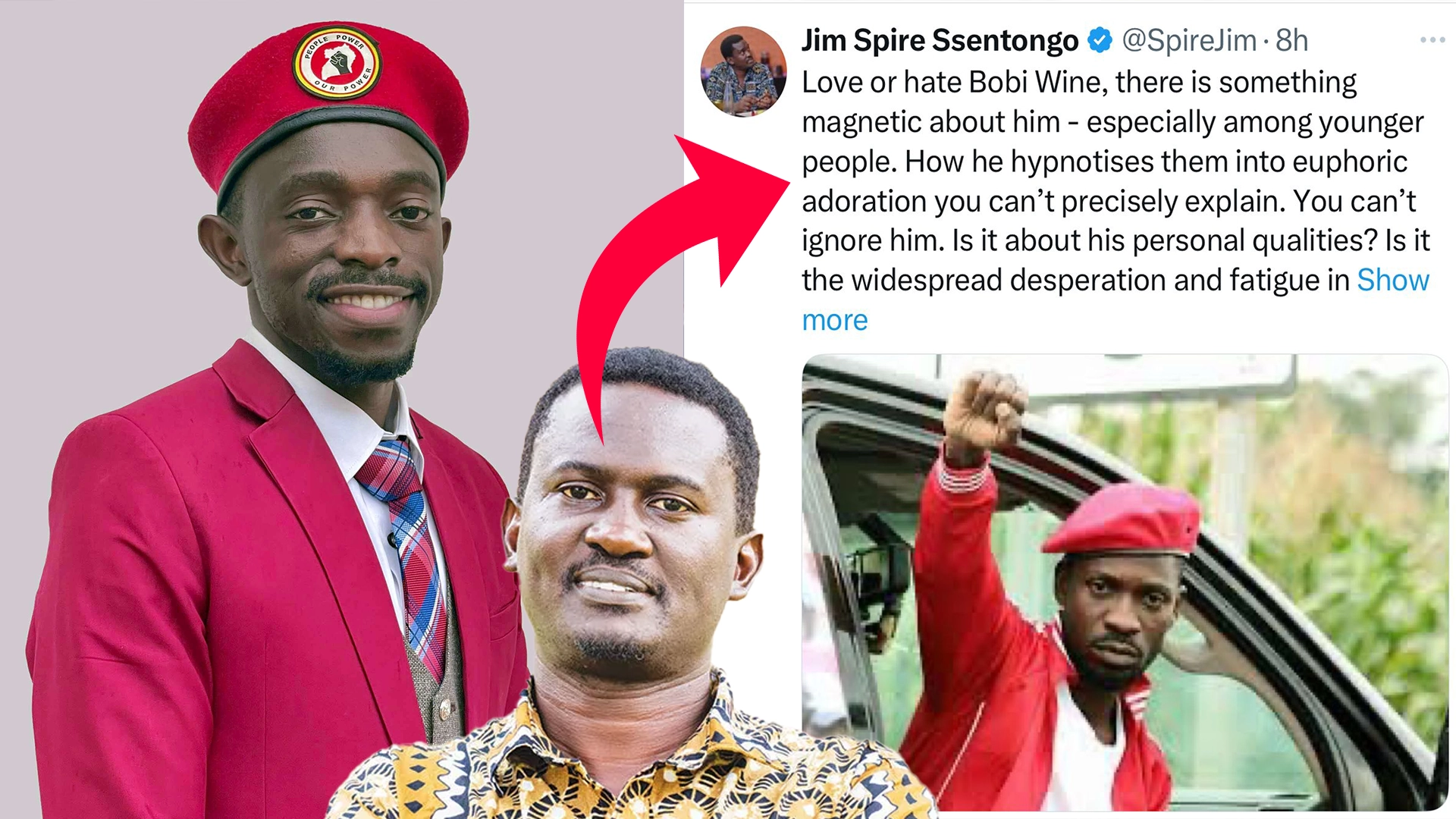
Jimmy Spire Ssentongo asked a powerful question, and I would love to give him answers, He said,
To answer this, I have to start with what happened recently at the NBS Talk show, Barometer. The entire country was in high gear, waiting for him to speak. The moment he stepped in the Studios, the atmosphere changed. The presenters couldn’t hide their smiles, felt that rare spark of hope, rushed to capture the moment, posing for photos, hurriedly shaking his hand, and recording videos, chanting welcome songs it was such a lovely moment.
We were glued to our TVs, phones, and laptops, desperate to catch every word. People in the streets gathered around screens, others turned their phones into TVs, streaming the show on Facebook Live and YouTube. Content creators, activists, and ordinary Ugandans, especially we the youth made sure his message spread far and wide. And what did the regime do? As usual, it panicked. It resorted to the shameful act of turning off electricity in some areas, fearing that too many people would hear the truth. But nothing could stop us. Even when the online streaming was sabotaged, we hurriedly found a way past that.
So, why does Bobi Wine command such love and devotion from us?
1. We Have Known Only One Ruler, and We Have Suffered Under Him.
I am one of millions of Ugandans under 35 who have never seen any other president. For my entire life, I have only known one man in power Museveni. I have only known corruption, broken systems, rigged elections, police brutality, tribalism, Unemployment and extreme poverty. I have only known a country where the cost of living keeps rising while job opportunities shrink. A country where our dreams are suffocated by poor governance. We have watched our leaders loot the country dry, while we, the youth, are told to be patient, to HUSTLE HARDER in a system designed to keep us down. We have grown up watching our leaders fly their children abroad for education and healthcare, while we struggle in underfunded schools and hospitals that barely function.
Bobi Wine speaks for us. He understands our pain because he comes from where we come from. He is not another detached politician with empty promises, a politician who grew up privileged, NO., he grew up in Kamwokya, a ghetto boy who fought his way up. He knows what it means to struggle, and that is why when he speaks, we listen.
2. We Have Lived Under a System That Kills Our Dreams
For years, we have been told that things will get better. But nothing ever does. Education does not guarantee a job. Hard work does not guarantee success. The only way to make it in Uganda is to be connected to the regime or to leave the country.
The system is designed to break us. It turns graduates into boda boda riders, engineers into street hawkers, and forces millions into exile. It silences those who speak out and rewards those who steal.
But Bobi Wine tells us that we deserve better. That we are not lazy, we are not stupid, and we are not worthless. That we have power, and we can take our country back.
3. He Represents the Courage We All Wish to Have.
Uganda is a country where speaking out can get you arrested, tortured, or killed. This is a country where opposition politicians are abducted in broad daylight, tortured, activists are jailed without trial, and voices of dissent are crushed with brute force. Yet, here is Bobi Wine fearless, standing up against the most brutal regime Uganda has ever seen. When they abduct his comrades, torture him, teargas him, and do all unspeakable things, he does not back down. That courage is contagious. It makes us believe that we, too, can resist.
4. His Message Is Simple, Direct, and Authentic
Unlike the traditional opposition who speak in vague, rehearsed statements, Bobi Wine does not speak in the cold, calculated language of career politicians, He doesn’t pretend, now way. His words resonate because they are raw, direct, and unfiltered. He does not complicate things with big words or empty rhetoric. He says it as it is. He does not claim to be a saint or a messiah, he presents himself as one of us, just another Ugandan who has had enough.
5. His Vision for Uganda Is Clear and Achievable
Beyond his personal charisma, what makes Bobi Wine even more loved is his vision for Uganda. Unlike Museveni’s regime, which thrives on confusion and lies, Bobi Wine has laid out a clear roadmap in his manifesto. He has addressed the issues that matter most education, healthcare, job creation, governance, and human rights.
His policies are not just words; they are practical solutions that can uplift the common Ugandan. He envisions a Uganda where hospitals are well equipped, where teachers and doctors are paid well, where police and army officers serve the people instead of oppressing them. He has a plan for reviving our economy, restoring democracy, and ensuring that every Ugandan, regardless of their background, has a fair chance at success. For the past four year he has been the president of NUP we have seen him do that with the little at his disposal, just for his party.
That is why we love him, not just because he speaks well, but because he has the solutions to the problems, we face every day. To anyone out there interested in the manifesto, check out JBMuwonge website and you will have a full copy.
>>>>NUP MANIFESTO<<<<<
6. He Gives Us Hope in a Country That Thrives on Hopelessness
For decades, we have been conditioned to believe that nothing can change. That Uganda belongs to one man and his people. That elections are just formalities. That we should lower our expectations and survive instead of thrive. But Bobi Wine changed that narrative.
He has shown us that Uganda does not belong to Museveni it belongs to us. That we are not helpless victims we are the power. He has ignited a fire in us that can no longer be put out. Even when they block him, jail him, or rig elections, we remain determined and optimistic.
6. The Regime’s Fear Proves His Strength
The government’s response to Bobi Wine is all the proof we need that he is the real deal. Weak opponents do not get banned from radio and TV stations. They do not have their concerts blocked. They do not have their rallies blocked. They do not get arrested, beaten, and dragged to military courts on false charges. They do not force a regime to shut down the internet, turn off power, block social media or deploy thousands of soldiers just to stop them from speaking, their supporters don’t get all the treatment Museveni mete on NUP Supporters.
Everything Museveni does to suppress Bobi Wine is proof that they fear him. And if they fear him, it means he has the power to bring change.
7. He Has Turned Politics Into a Movement of the People.
Bobi Wine is not just a politician. He is a movement. Bobi Wine has made politics something that belongs to all of us, not just a few elites. He has united Ugandans across tribes, religions, and economic backgrounds. Rich or poor, Muslim or Christian, Muganda or Itesot, we all chant his name because we know he represents all of us.
We have seen wealthy businessmen donning NUP Tshirts stand with boda boda riders, teachers march alongside students, and villagers chant his name as passionately as those in the city.
To answer Jimmy Spire Ssentongo’s question Bobi Wine’s magnetism is a combination of his personal qualities, our desperation, and our collective hunger for change. He is a fearless leader in a time of fear. A voice of truth in a land of lies. A symbol of resistance in a country built on oppression.
Love him or hate him, Bobi Wine cannot be ignored. And for those of us who have suffered under this regime, who have only known one president in our entire lives, who are tired of watching Uganda sink deeper into dictatorship we know that Bobi Wine is not just a politician. He is our hope. And that is why we will never give up.
People Power, Our Power.
I remain #JBMuwonge
Email: contact@jbmuwonge.com
Website: www.jbmuwonge.com
-
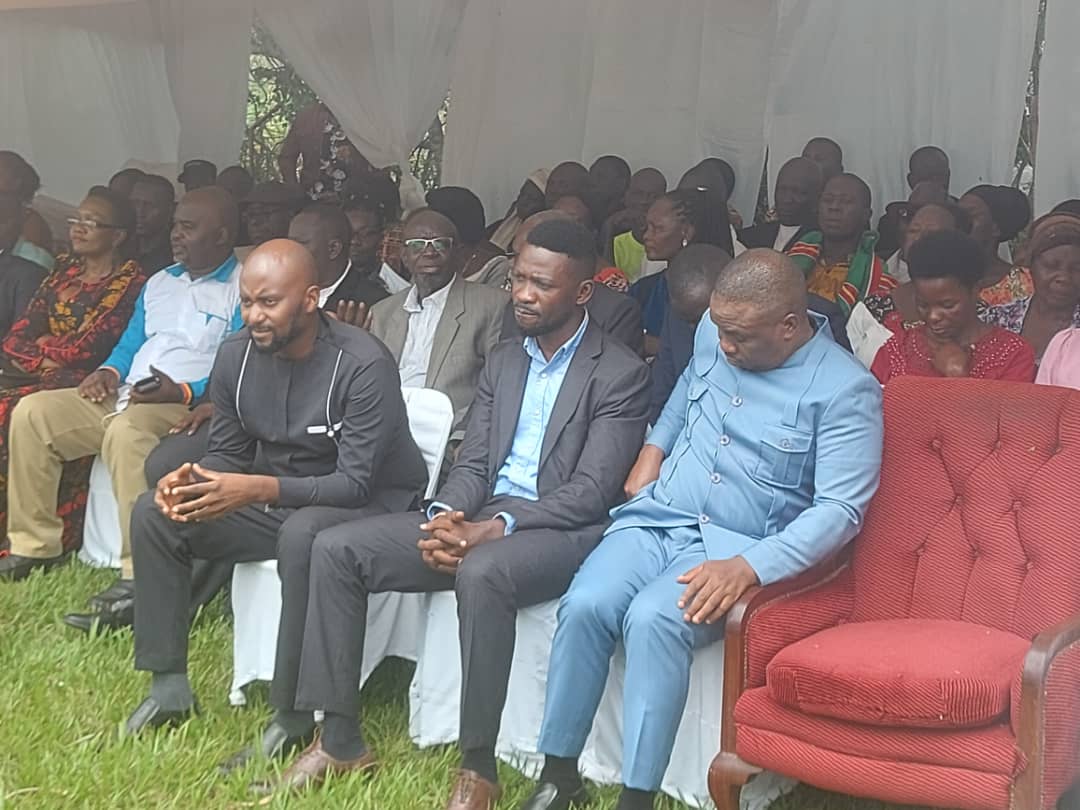
 News3 years ago
News3 years agoPresident Bobi attends burial of wife to ex LOP Oguttu
-
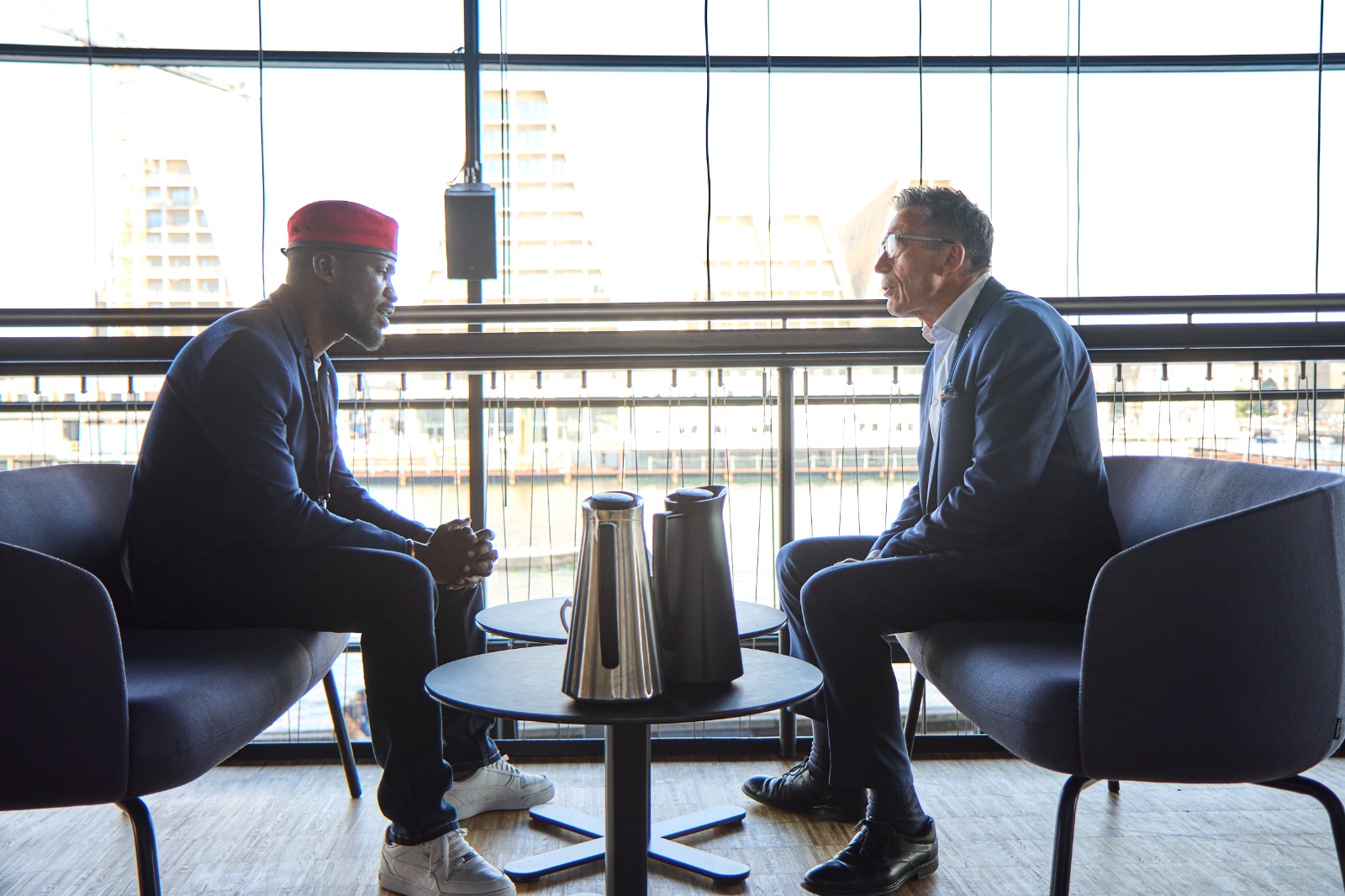
 News3 years ago
News3 years agoBobi meets ex NATO boss, discuss key issues
-
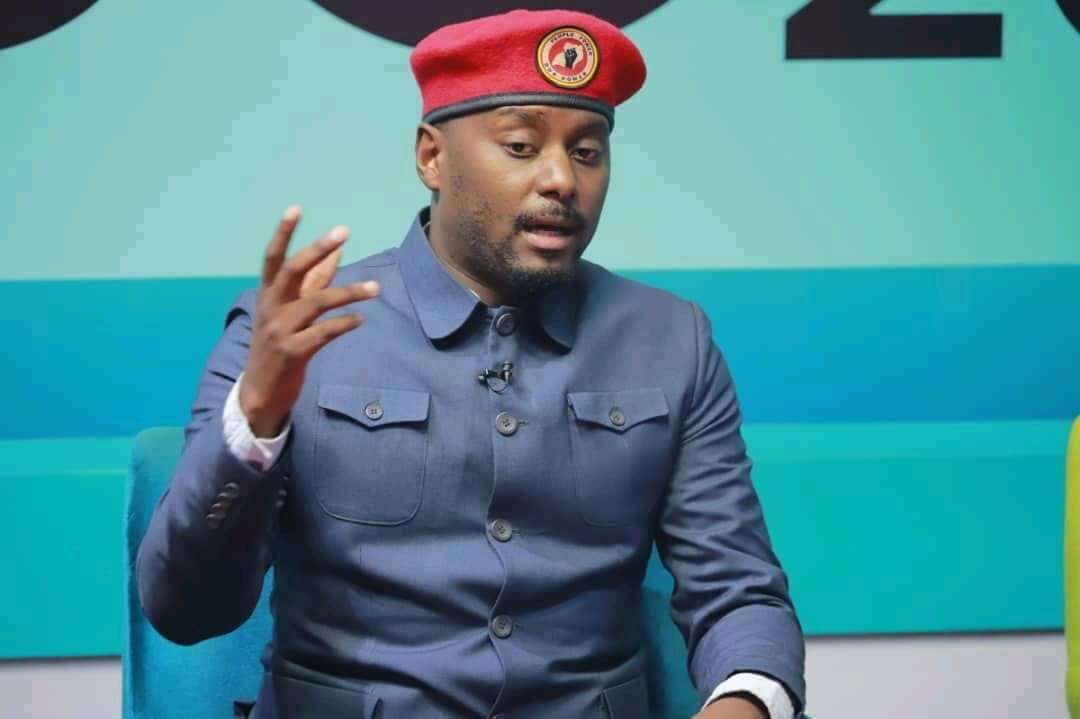
 Uganda4 years ago
Uganda4 years agoThis is why dictator M7 throws “Small victories” to the opposition
-
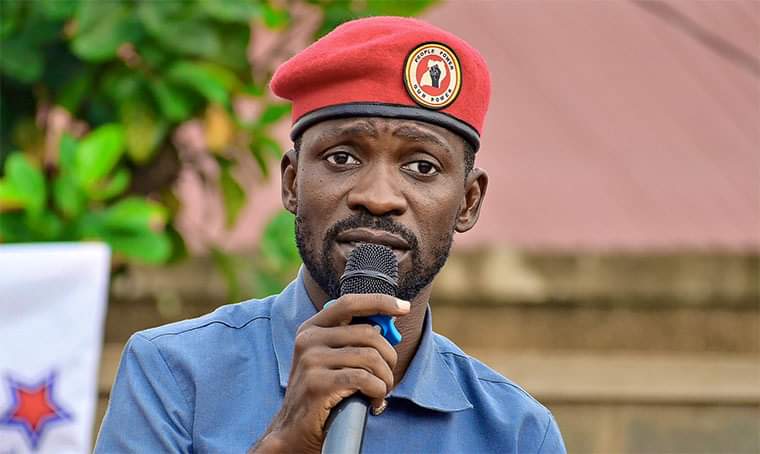
 News3 years ago
News3 years agoEXCLUSIVE: A recap of Bobi Wine interview with BBS
-
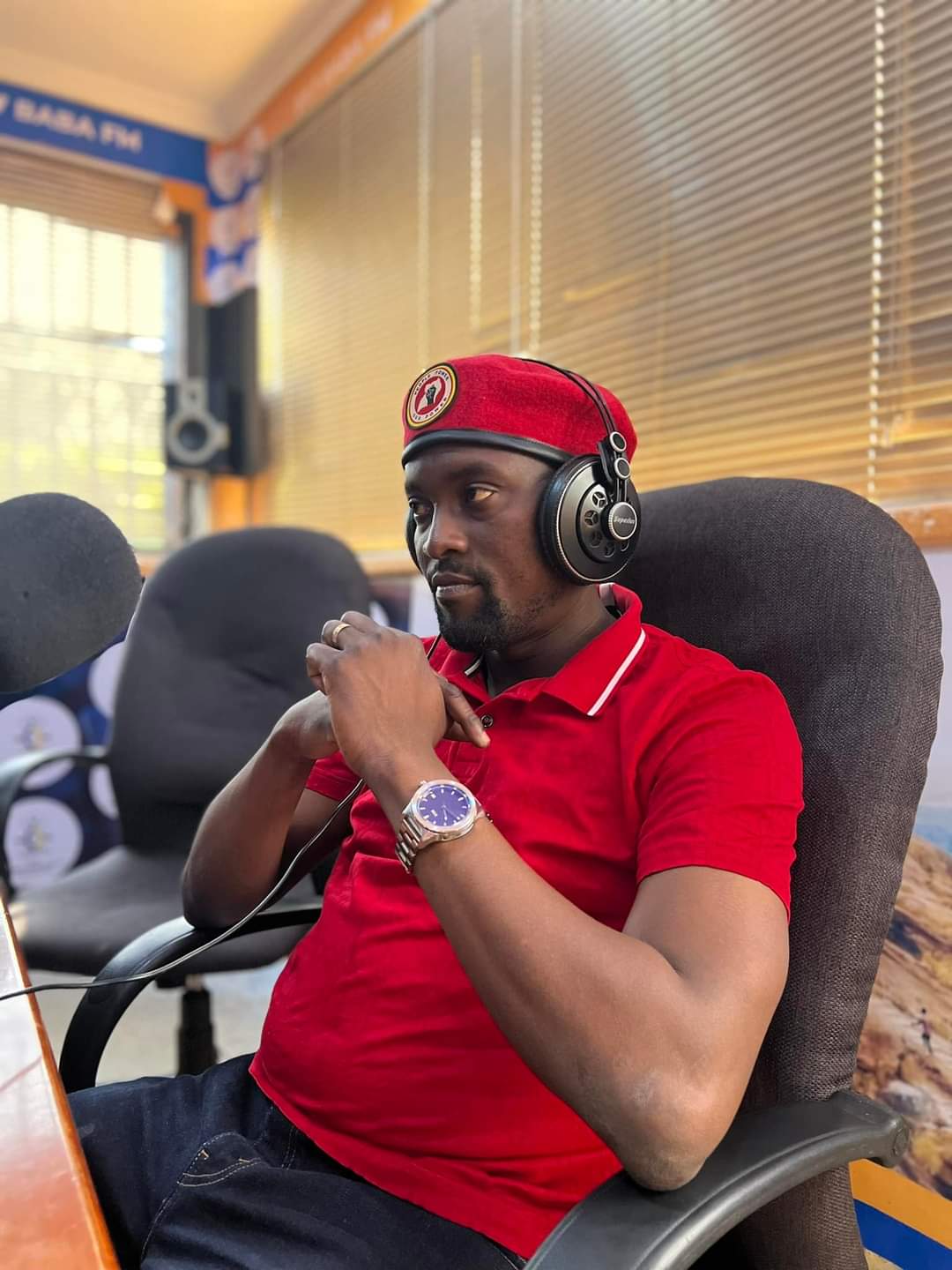
 Exclusive3 years ago
Exclusive3 years agoNUP Deputy Spokesperson Waiswa celebrates birthday in style
-
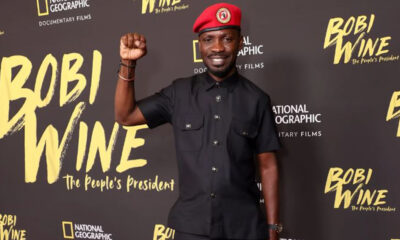
 Exclusive2 years ago
Exclusive2 years agoBobi Wine The People’s President Full Documentary


